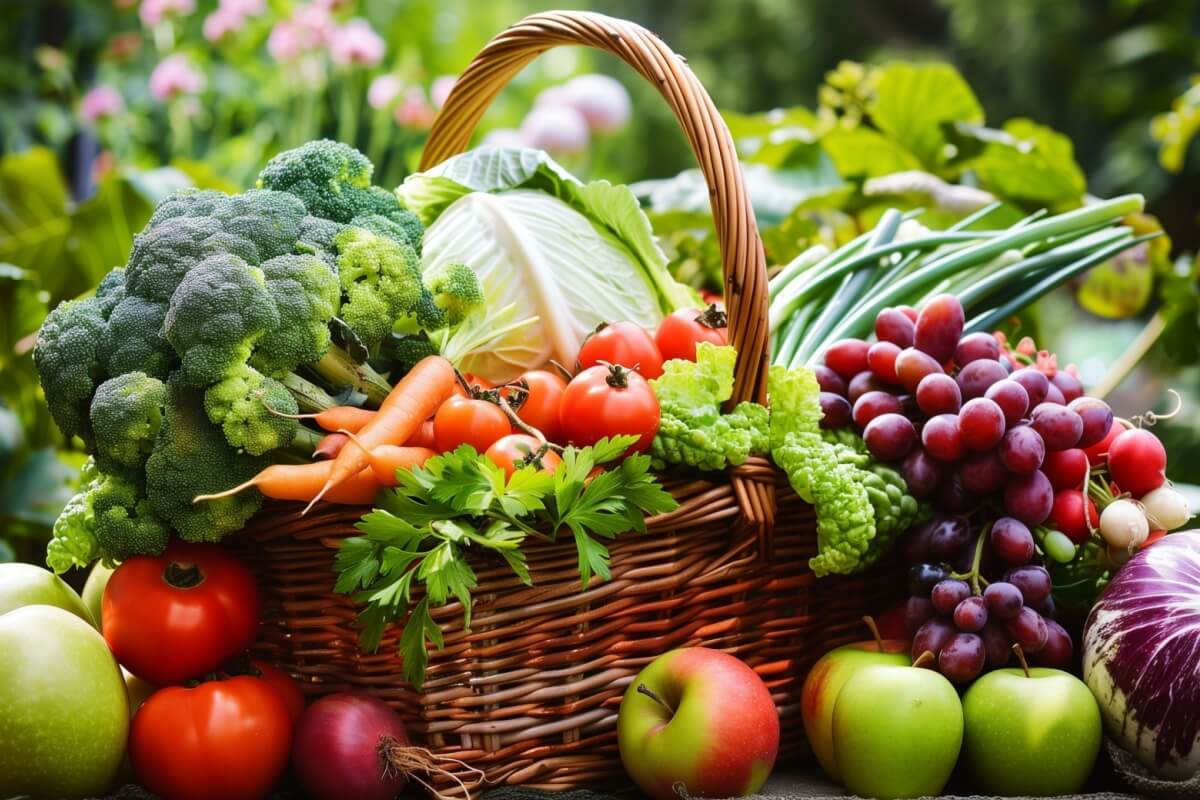As we age, the importance of good nutrition skyrockets and directly influences our energy, mental acuity and general health. For seniors, the secret to a vibrant quality of life could lie in their food choices. Enter organic foods – a game changer in the dietary world.
At The Woodlands at Canterfield, our dining services don’t just elevate meals for residents – our luxury senior living community strives to create culinary creations that contain nutritious, organic ingredients every day!
We’ll uncover the benefits of eating organic, guide you through choosing the best options, and share some savvy tips to integrate these power-packed foods into your everyday meals seamlessly. Get ready to transform your diet and elevate your well-being!
Understanding Organic Foods
Organic foods are produced through farming practices that prioritize sustainability and environmental responsibility. Unlike conventional farming, organic farming avoids synthetic pesticides, fertilizers and genetically modified organisms (GMOs). This results in food that is often fresher and richer in nutrients.
To be labeled organic, products must meet specific standards set by regulatory bodies. These standards ensure that the food is grown, harvested and processed without harmful chemicals or practices. Understanding these distinctions is crucial for older adults in making healthier food choices.
The Benefits of Eating Organic Foods for Seniors
Higher Nutrient Content
One of the most significant advantages of organic foods is their potential to provide higher nutrient levels. Studies have shown that organic fruits and vegetables often contain more vitamins, minerals and antioxidants compared to their conventionally grown counterparts. These nutrients play a vital role in maintaining bone health, boosting the immune system and improving overall vitality.
Lower Pesticide Levels
Organic farming practices eliminate the use of synthetic pesticides, which can be harmful to our health. Consuming organic foods reduces exposure to these harmful chemicals for seniors, whose bodies may be more vulnerable to toxins. This can lead to a lower risk of pesticide-related health issues, such as weakened immune function and cognitive decline.
Potential Health Impacts
Eating organic foods has been linked to various health benefits, including a reduced risk of chronic diseases. For older adults, this is particularly important as it can help manage existing health conditions and prevent new ones from developing. Organic diets have been associated with lower rates of heart disease, certain cancers and neurodegenerative disorders.
Smart Shopping for Organic Foods
Recognizing Labels
When shopping for organic foods, look for labels that indicate the product’s organic status. In the United States, the USDA Organic Seal is a reliable indicator. Familiarize yourself with other certifications like “Certified Naturally Grown” and “Non-GMO Project Verified,” which also ensure the product meets organic standards.
Choosing Fresh Produce
Opt for fresh, seasonal produce whenever possible. Farmers’ markets are excellent places to find locally grown, organic fruits and vegetables. These markets often provide a wide variety of fresh, nutrient-dense options that support both your health and local agriculture.
Budget-Friendly Options
Organic foods can sometimes be pricier than conventional options. To get the most value, prioritize organic purchases for items known to have higher pesticide residues, such as strawberries, spinach and apples. Additionally, consider buying in bulk or joining a community-supported agriculture (CSA) program to save costs.
Seamlessly Adding Organic Foods to Your Diet
Start Small
If you’re new to organic foods, start by making gradual changes. Begin by replacing a few key items, such as fruits, vegetables and dairy products, with their organic versions. This approach makes the transition more manageable and allows you to notice the benefits over time.
Meal Planning
Incorporate organic foods into your weekly meal planning. Create a balanced diet that includes a variety of organic fruits, vegetables, whole grains and lean proteins. Experiment with new recipes that highlight fresh, organic ingredients, making mealtime both nutritious and exciting.
Delicious Snacks
Don’t forget about snacks! Organic nuts, seeds and dried fruits make excellent, healthy snacks that are easy to incorporate into your daily routine. They provide essential nutrients and energy boosts between meals, helping to maintain optimal health and vitality.
Savor Life’s Rich Flavors with Organic Foods
Choosing organic foods is a step toward a healthier lifestyle, especially for seniors. By prioritizing nutrient-rich, pesticide-free options, you can enhance your well-being and enjoy the full spectrum of natural flavors. At The Woodlands at Canterfield, we promote a lifestyle combining luxury with wellness. Our commitment to high-quality living extends to the meals we offer, ensuring that residents savor the best in every bite.
Ready to learn more about how we can support your nutritional needs? Contact us today and discover the luxury senior living lifestyle that awaits you at The Woodlands at Canterfield.




